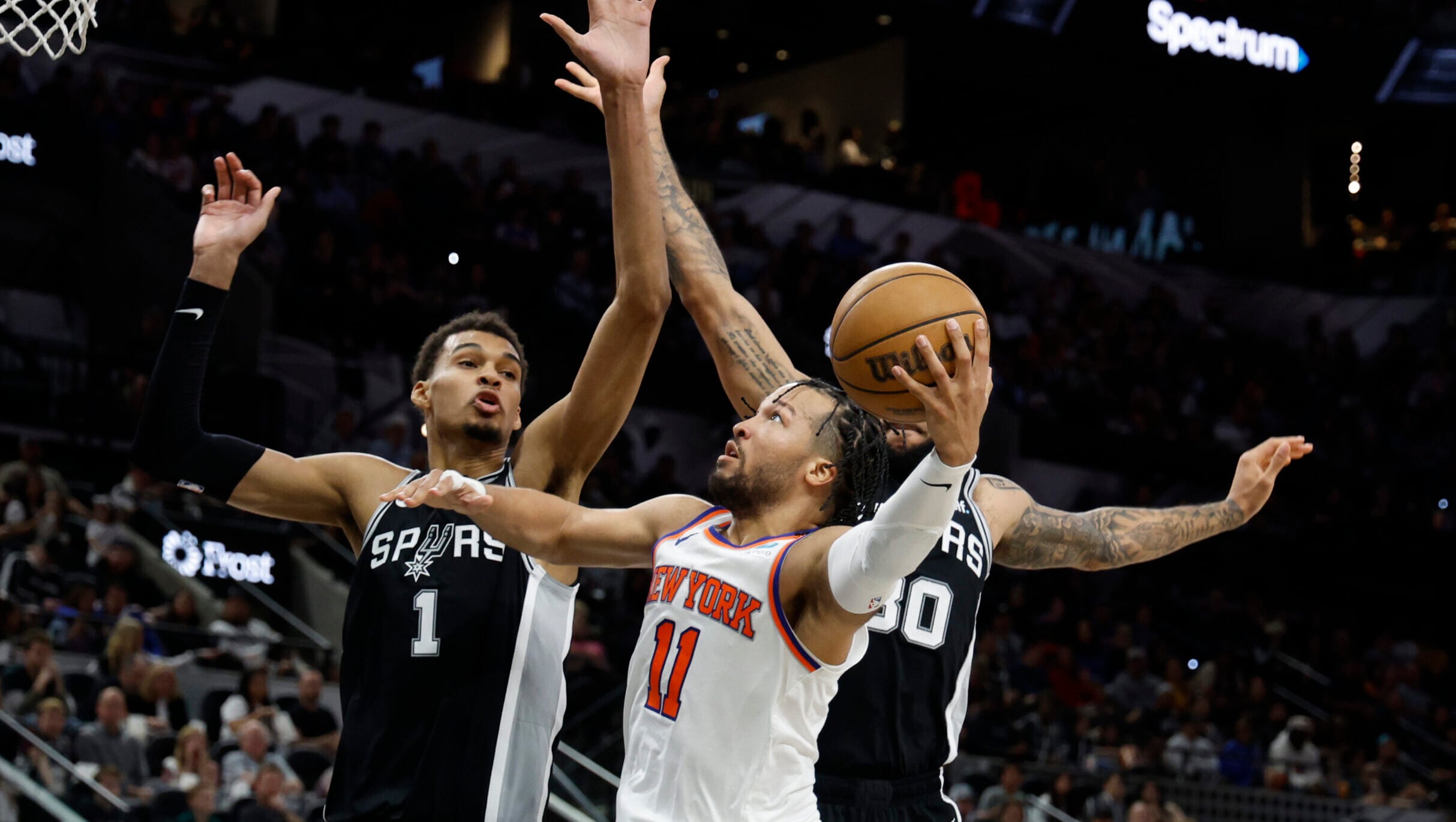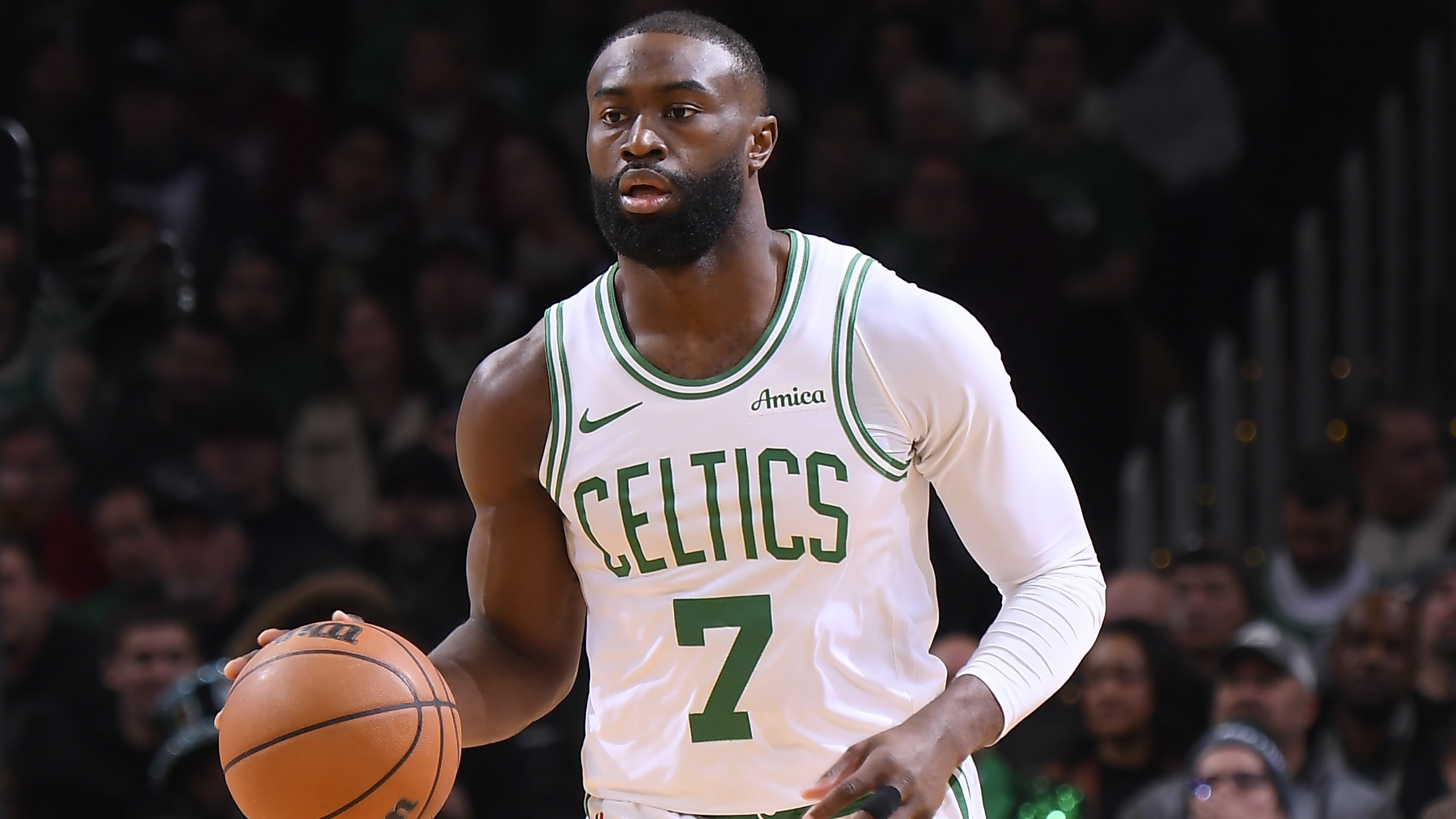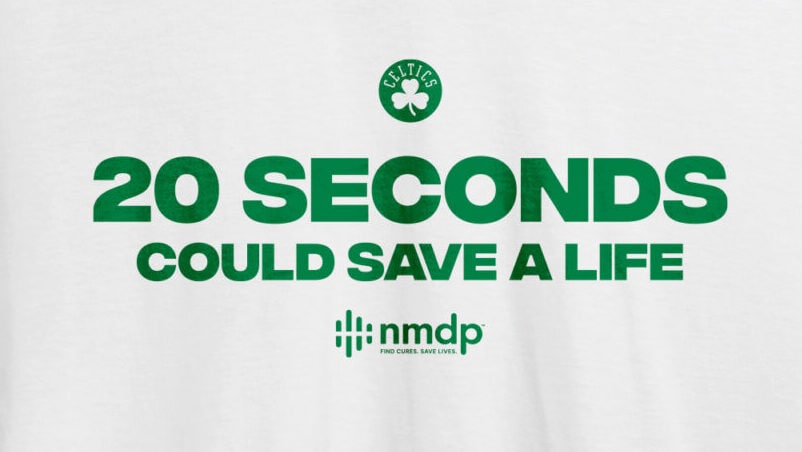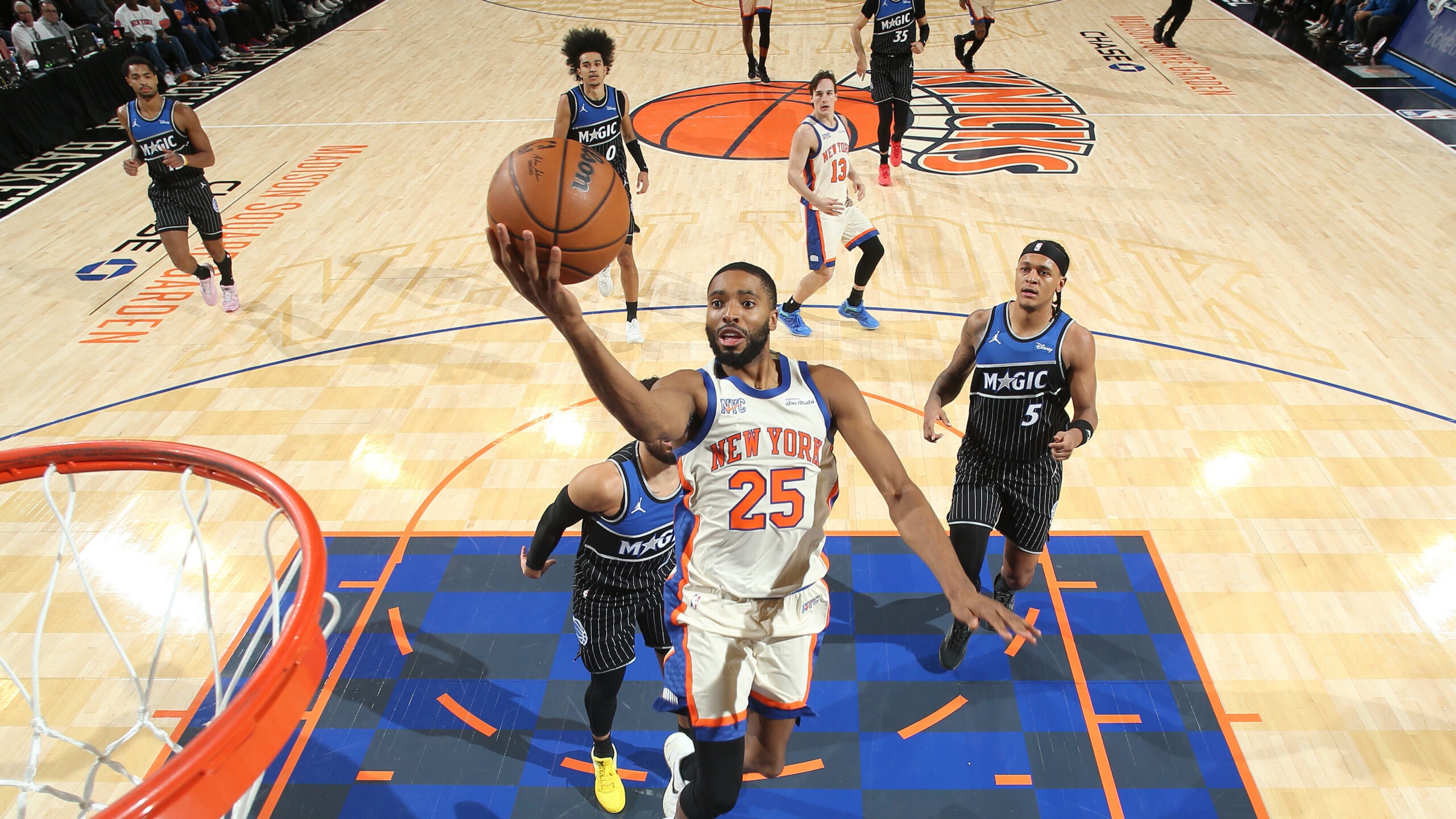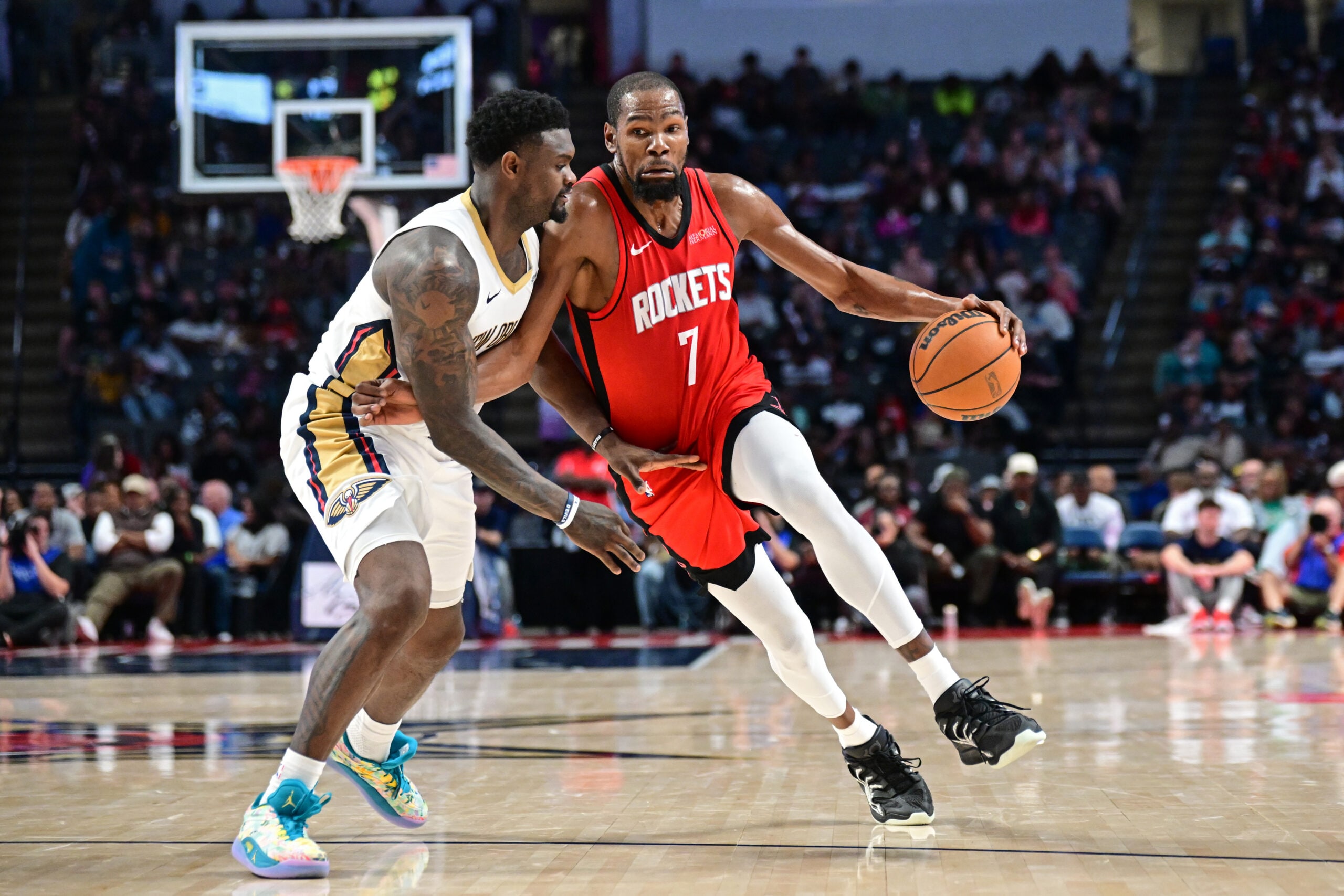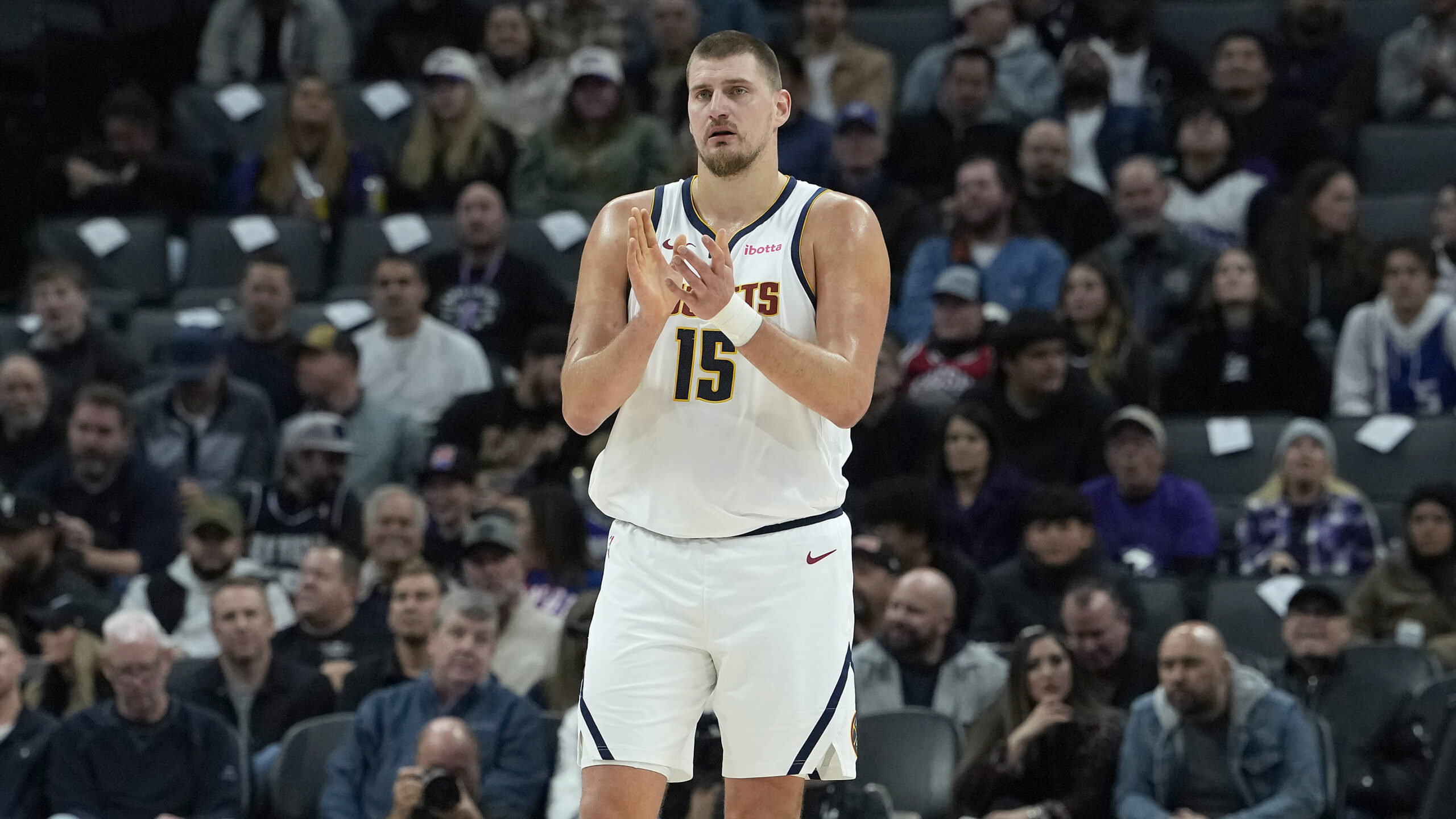
Lloyd Pierce says he feels a sense of responsibility to use his voice and continue the work of Dr. Martin Luther King Jr. and other civil rights leaders.
Being a prominent Black man in Atlanta and deciding to use your voice against racism and to promote unity is also choosing to walk in size 20 footsteps. Given the city’s steep historical significance in civil rights and the iconic figures who led that fight many decades ago, it’s not for the faint of souls.
But Lloyd Pierce not only accepted that challenge within the last turbulent year, he quickly became an impactful and commanding presence not only in the community, but within the NBA as well. The voice of the Atlanta Hawks coach became a force for change, railing against police brutality and systemic racism, and he took part in numerous marches — with mask on, of course.
Pierce also went deeper. He became the face of the Hawks during voter registration drives, especially when the team offered the use of State Farm Arena to the city to serve as a voter registration central for the county.
At the March On Georgia last summer following the deaths of George Floyd and Breonna Taylor, Pierce was one of the keynote speakers, and received loud applause when he ended by saying: “I was born a Black man. I am going to die a Black man. But I do not want to die because I am a Black man.”
Even before those incidents, Pierce partnered with and made a contribution to the Georgia Innocence Project, an independent nonprofit organization that works to correct and prevent wrongful convictions in Georgia.
With the approach of Martin Luther King Jr. Day, Pierce recently took time to reflect on the last year, in which he learned plenty about himself and Atlanta, and the depth of desire within the NBA players and coaches to bring about positive change within communities of color.
Here’s a Q-and-A with the 44-year-old Hawks coach, who spoke eloquently once again with NBA.com on the subjects that have become a passion for him:
Q: In Atlanta, you’ve quickly become known as more than just a coach. How and when did you get your voice, and why did you decide to use it?
Pierce: I don’t know if there was a moment. I’ve been influenced by a lot of people and the work they’ve done. When you become a head coach you get a different level of access and people are asking you to speak. It’s not a moment where you show up and you’re working with the Georgia Innocence Project. There are things that lead up to that. I’ve been influenced by friends who specifically expressed and used their voice in different ways. By the time I become a head coach in the city of Atlanta and get to meet John Lewis, the Reverend CT Vivian, ambassador (Andrew) Young and Hank Aaron, I think instantly you realize you’re in a different place in life. For me, I knew in my first year here that I’m in a different place in my life if I have access to Hank Aaron, if I have access to congressman Lewis, and so what can I do in this moment to help others? And that’s really what I’ve been charged with since I’ve been in Atlanta.
I imagine being a Black man in a leadership role and with a platform in Atlanta, of all places, comes with a sense of responsibility. Do you agree?
Without a doubt. When you’re in Atlanta and you meet those people, it’s different. I grew up studying Dr. King and the Civil Rights moment and hearing about these people, and to actually meet them, to actually know where Auburn Avenue is and the MLK Center and Edgewood … these are the areas you read about. To be in that city, to know these people, to know what they fought for, to know that that fight is still occurring, you feel the sense of responsibility to stand on their shoulders and continue that work. You don’t anticipate this in 2020, but it’s a moment of truth to those in leadership positions to try to figure out what your sense of purpose is in life. To me in 2020, it was a sense of purpose and a commitment to stand on the shoulders of those greats.
You’re from San Jose, where John Carlos and Tommy Smith attended college and of course at the 1968 Olympics delivered one of the most iconic symbols in the fight against oppression. That was before your time, but did that register with you?
You know, I have an uncle who has the high jump record at San Jose State, where they went to school. So I’m familiar with the San Jose State track program. I grew up seven minutes from the university, definitely familiar with the two gentlemen and what they did in Mexico City. But Juneteenth for me was my growing up, my understanding Black history. The Juneteenth celebration was in downtown San Jose, we had the freedom train ride from San Jose to San Francisco to celebrate and march in San Francisco. Everybody would hop on the Amtrak and go.
After putting in so much work on the front line in Atlanta trying to get people to register to vote, where were you election night, and what was that like for you?
I was in L.A. It was a mess for me. You understand the impact of what we tried to do in Atlanta and the Hawks in opening up the arena. You had this emotional and powerful feeling for what you’re doing. The organizers were the true heroes, but we were able to do our part as well. Now election night comes and we’re kind of out of it. I couldn’t remove myself from the TV, thinking that something was going to reveal itself. It was nerve wrecking, it really was. You know it’s going to be a long process. We heard (the final result would take) days, potentially weeks. I’m sitting there on election night thinking I’m going to get an answer that night, knowing good and well that it’s not happening. But that’s when the drama and divide was truly revealed, from election night moving forward. And we’ve still been dealing with it.
Because of the turbulent events of the past year, are NBA players finally getting around to being politically savvy?
I’ll say it for myself that I’m not politically savvy. I think the activism and the ability to speak out is not about being politically savvy. I think as a Black man I’m frustrated and saddened by what I see for people of color, saddened for what I see when you think of politics and power and how it impacts our country. But I also realize I have a voice, and our players realize they have a voice. So with their voice they want to work with people who want to do right and create change for people like us, people like me, people in impoverished communities who don’t have health care access and don’t have political access. So I don’t know if anyone is politically savvy in the NBA, but I do know that we are extremely passionate, and I am committed to helping the people of Atlanta and helping people who look like me understand that there’s representation at many levels and how do we help them get there. That’s what’s driving me and I think that’s what’s driving our players as well.
In the pivotal Georgia primaries, Kelly Loeffler, the conservative Republican who has a stake in the Atlanta Dream, ran for the Senate and the players on the Dream were fiercely united against her. What were your thoughts on her?
I never worry about people because there’s always going to be a divide of opinion and beliefs … I’ve never concerned myself with her and the affiliation with the WNBA or anyone else for that matter. It is their right, their freedom of speech, their ability to be active in the community and what they stand up for. Our WNBA players have been extremely passionate about human rights and civil rights. That’s the focus — it’s a group of women, a group of players that have been unified for social and racial causes for a long time — to have that in the form of leadership at any level. I commend our WNBA players. We aren’t just athletes and coaches.
The NBA has encouraged players and coaches to express their thoughts on all things political and social, but I wonder: Would an outspoken conservative player be welcome in NBA locker rooms?
Maybe. I could use an example, I won’t mention the players’ name but he was extremely outspoken and extremely conservative and I know for sure his opinion has changed a tad bit because he hadn’t fully understood the other side’s point of view. And when that was brought to his attention, he was blown away. For me, I would love to listen to someone who’s outspoken conservative with an open mind, and I would love for them to be able to speak it with an open mind. It’s not my job to convince someone else to change their beliefs and ideas. It’s my job to express to them what I feel is right, it’s about everyone having equal opportunity, and to listen what they have to say with an open mind and an open heart. I can’t say that conservatism is wrong, I can’t say that liberalism is right. I can’t say any of those things. What I hope is, can we connect? Can we have meaningful conversation? Although we may disagree, can we learn more about each other? To me that’s the true blueprint of this country. That fact that there’s so many cultures and backgrounds, we’re all neighbors. Can we coexist with someone who’s from somewhere else? I would hope so, because they live right next door. Let’s learn a little more about each other and try to move forward. I know in sports we don’t all think the same. I’ve got coaches on my staff, we don’t agree on everything but we have to come up with a plan. And you have to go through your conversations to come up with a plan.
Your college teammate at Santa Clara was Steve Nash, who was born in South Africa, raised in Canada and then played played among mostly Black players in America. Did you have conversations with Nash in college?
I wouldn’t say it was deep, but I always thought we had good conversations. He and I still have conversations about everything. What you mentioned about Steve is the context of it all. He was born in South Africa where his father played soccer and grew up in a country that was still dealing with Apartheid. He moved to Canada and then comes to the United States. Instantly, that’s three different countries where he was raised in and he’s got a wealth of influence. To me, that’s probably why he’s as vocal and passionate about community efforts because he’s experienced so much. And having those meaningful conversations comes from listening and receiving the wealth of knowledge and information from various factors. If you stay in the single and narrow path it’s going to be hard to grow. I think that’s what we’re seeing in our country because we have limited viewpoints and that’s why we’re as divided as we are.
On that note, how important is it to hear the voices of white people and see them active as partners in the struggle for equal rights?
A lot of white voices have been awakened. A lot of white voices have acknowledged that it’s not OK to just not be racist, you have to be against racism, you have to stand against racism, and you have to be vocal in your efforts. That’s been transformation for a lot of white people in our country. So it’s important because it’s one of the things we saw in the marches and protests (last year). We saw white people joining people of color against police brutality, against racism, against systemic racism, and it just shows that when unified, the power of the voice grows expeditiously but it’s not going to do so if it’s just Black people marching, or Hispanic marching. Because then it’s just Black Lives Matter and it’s just a Hispanic issue. It affects everyone and we need white voices to march and speak up and demonstrate that it’s a major issue. It’s been good to see. I’ve had more meaningful conversations with my white friends than I’ve ever had.
You and Doc Rivers helped mobilize NBA coaches and get their participation, and how satisfying is it to see such unification?
I couldn’t be more prouder of our coaches association and the unifying voices we’ve had since the George Floyd incident. It’s the efforts of a lot of people. Doc Rivers has provided great leadership, Rick Carlisle, Quin Snyder, JB Bickerstaff, Dave Fizdale, Stan Van Gundy, it’s been tremendous to see all these guys communicate with each other. We’ve seen Gregg Popovich and Steve Kerr speak out (in the past) but I think everyone stepped up this time and tried to do what they could in their cities and what we could as coaches. The focus is on committed and sustainable change. It’s something we could be committed to whether we’re in this seat or not.
An NBA champion hasn’t been honored at the White House in the last four years. How welcome will it be to have that happen again, assuming the pandemic allows for it?
A: It should be an honor to be a champion, to become a champion, and be celebrated at the highest level in this country which is the president welcoming you into the White House. Because of the divide in politics and the frustration of power, it (hasn’t been) an honor. I would love for the next champion to walk into the White House and be celebrated for the world to see, because it means we’re getting closer to normalcy, getting closer to that partnership of politics and sports and community, because it should be a partnership moving forward. To see that partnership and to know there is not that divide, that would be great to see again one day.
* * *
Shaun Powell has covered the NBA for more than 25 years. You can e-mail him here, find his archive here and follow him on Twitter.
The views on this page do not necessarily reflect the views of the NBA, its clubs or Turner Broadcasting.





